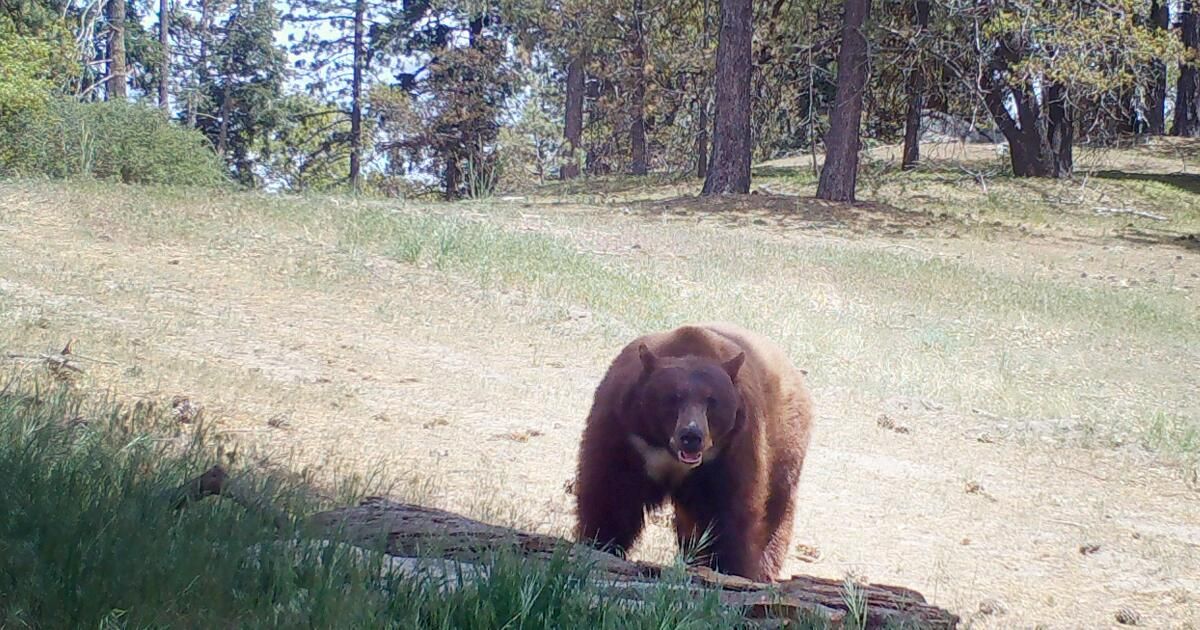To the editor: Steven Rinella's plea to be allowed to shoot more black bears fell on deaf ears with the “extremist” animal rights activist, no matter how many of his cruel and thoughtless friends prefer black bear meat at the unconventional (read: creepy) tasting parties he hosts.
First of all, any research funded by people who love nothing more than killing wild animals for fun and entertainment is suspect.
Secondly, it fails to mention these facts: for every animal shot and killed by a hunter, one is left wounded and dies a slow, agonizing death, and hunters frequently kill new mothers, leaving their cubs to the same sad, tragic fate.
Third, why can't we humans celebrate and rejoice at the good news that the black bear population is thriving, rather than seeing it as a new hunting opportunity?
Ultimately, there is a thinner line between the killing of an animal and the killing of a human being.
JJ Flores, Dana Point
..
To the editor: Hunting black bears in California? While I'm not a hunter (I'm just too lazy), I have no problem with hunting as long as the animal species is not endangered and you eat what you kill.
Raymond Sokolov (“The Salsa Apprentice”) has an excellent recipe for grand veneur sauce that he recommends serving with bear leg.
Bob Wieting, Simi Valley
..
To the editor: The claim that black bear population growth justifies increased hunting of these animals overlooks the ethical and ecological implications of such a proposal. The recovery of California's black bear population is a conservation success, not a justification for increased hunting pressure.
Claims that hunting fees fund conservation initiatives fail to acknowledge the broader environmental impacts and well-being of individual animals and their families. Conservation should prioritize coexistence and non-lethal management strategies rather than perpetuating outdated practices that disrupt natural ecosystems.
Furthermore, the argument that hunters benefit from wildlife management contradicts the responsibility of the wider community to safeguard biodiversity for future generations. It is essential that wildlife policies respect ethical standards and prioritise sustainable practices that protect the interests of all species.
Kayla Capper, Ojai
The author is California state director of the Animal Wellness Action group.
..
To the editor: Rinella concludes his article by writing: “It is understandable that most Californians never choose to be hunters. What is less clear is why more people do not support those who do.”
Because?
The author apparently ignores that the largest wildlife crossing in the United States is being built right here in Southern California to protect our mountain lion populations. He also seems to ignore that most Californians do not tolerate innocent people being killed for the specious reasons he has given.
Killing sentient beings simply for existing is cruel and inhumane, which is why most Californians do not support what he does.
Kelli J. Nicholas, Simi Valley












